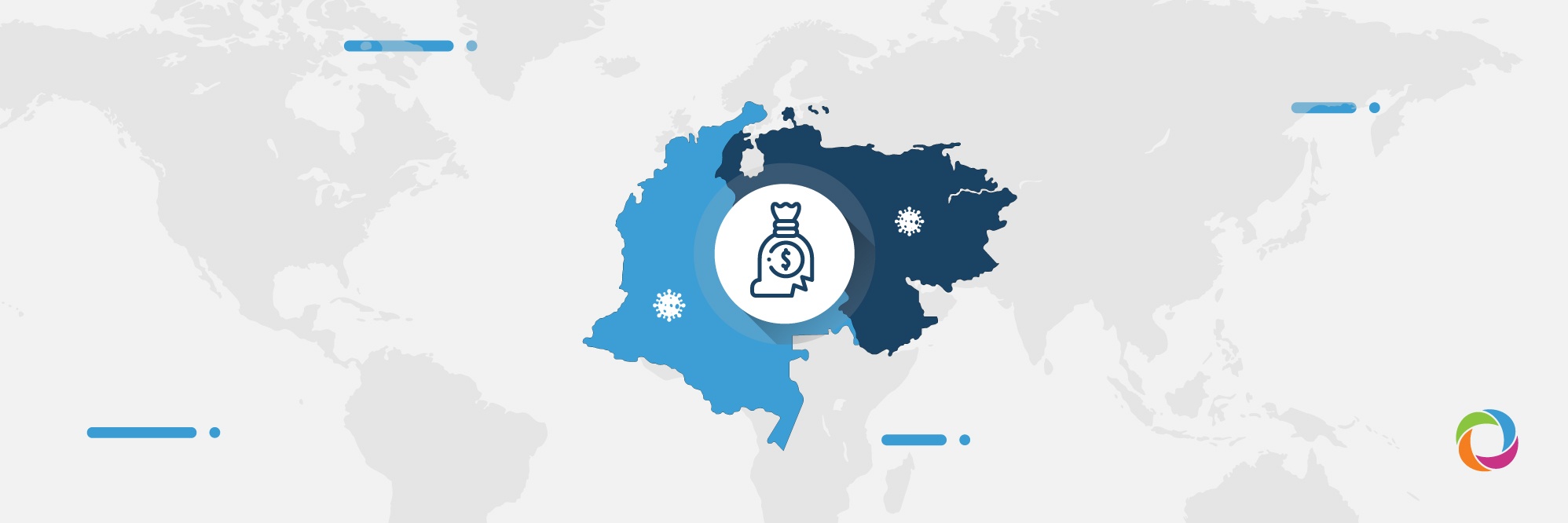Lack of medical assistance, hunger, poverty, crime, and violence are part of everyday life for communities living on the Colombian-Venezuelan border where indigenous people and migrants are the most vulnerable groups.
The problems have worsened further within the last few months, when almost all border crossings between Colombia and Venezuela were closed due to lockdown measures, with the only border-left open being located in Cucuta. It is even more difficult for this crisis to be addressed because of the political tension between the Venezuelan and Colombian governments who have failed to cooperate with each other.
The most difficult situation is in the La Guajira district, northern Colombia, bordering Venezuela. The National Administrative Department of Statistics in Colombia (DANE) estimates that 92% of the almost 900 thousand La Guajira inhabitants live in poverty and the region is almost totally deprived of a healthcare service since the system has virtually collapsed. There are only three hospitals designed to help 900,000 people, which are now overwhelmed due to the COVID-19 pandemic.
Naturally, these problems did not suddenly occur simply as a result of COVID-19, since even before the outbreak, the population of La Guajira suffered because of malnutrition or water shortages. Humanitarian aid organizations indicate that these are the main factors that have caused the death of many children in the region especially those from indigenous communities. The situation was worsened by the wave of migration coming from Venezuela which borders the district. As a result of extreme poverty in their own country, Venezuelans established illegal camps along the border. Today, these camps are overcrowded, becoming epicenters of pandemic spreading. Furthermore, the continued quarantine measures and lockdowns have forced many people who had previously been living on the streets to move to these camps, causing further overcrowding.
The media reported about a small Colombian town of Maicao, lying near the Venezuelan border, where 300 Venezuelans live in 15 makeshift shelters. These temporary homes have no water, electricity, or drainage. Many who live there rely only on food that is delivered by humanitarian aid organizations, now hampered by the pandemic. However, the direst situation for the inhabitants of the temporary camps is the lack of basic medical care. Yeimy Nassir, who runs a migrant and refugee shelter for the Catholic Church’s Pastoral Social in Maicao, said that for every 10 migrants who his organization takes care of, one dies from a terminal disease. They cannot even expect a proper funeral due to the lack of financial resources.
Unfortunately, it is not only the pandemic and famine that make the communities living along the Colombian-Venezuelan border exceptionally vulnerable. Economic collapse and border closures have fueled violence between the armed groups that operate along the border. The clashes between them affect the locals as they compete to gain control of the cocoa crops. The International Crisis Group which has just prepared a report summarizing violent incidents on the border urges the Colombian and Venezuelan governments to find a way of communicating to address the ongoing conflict with the help of the international community.
According to UNHCR, despite the closures, 500-700 Venezuelans cross the border every day seeking help in other Latin American countries, mostly going through Colombia. The UN agency estimates that 5.4 million people have so far left Venezuela with the majority of them having nothing at all and therefore in need of urgent humanitarian aid. The COVID-19 outbreak has made it significantly more difficult to provide these people with assistance due to the lack of financial resources as Latin American countries have had to focus on bringing relief to their own citizens. This is why, on the 10th of December 2020, 159 humanitarian organizations launched a petition asking donors to allocate US$1.44 billion to help the 4.6 million Venezuelans now living abroad.

